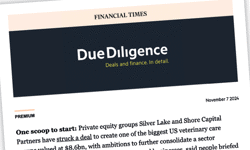Watching an old episode of TV detective series Lewis, recently, while pondering what media policies the political parties might pledge in their manifestos, made me unusually fond of the good old days.
Lewis and his brainy sidekick needed to get at website history, email trails and mobile phone records to mop up the latest round of bloody mayhem in Oxford. They were thwarted at every turn by clever dick digital techies and expensive lawyers waving human rights, privacy and freedom of expression in their faces.
“People are dying, you know,” said the hapless TV cops, and for a minute I was not sure whose side I was on. As a former crime reporter and editor, I had never seen helping the police solve a case or protecting freedom of expression as one-or-the-other issues.
With certain safeguards, it was always possible to maintain the journalist’s principle of protecting sources – and freedom of expression – while fulfilling the public duty of supporting the police.
The mist lifted as I realised what was disturbing me: the episode had been written before July 2011.
The firestorm
That was when revelations about the News of the World and Milly Dowler’s mobile phone messages changed press freedom in Britain overnight. Journalists became villains – and daring to suggest otherwise was almost as toxic.
Never mind that one vital piece of the jigsaw was subsequently shown to have been out of place – it was not the News of the World that erased the messages on tragic Milly’s phone and which gave her parents false hope that she was alive.
An unprecedented firestorm followed. It is said, truth is the first victim of war, and events have shown that was but the first shot in a conflict that had ramifications right across the media.
The Leveson inquiry and its report had their flaws. Not least, they created the impression all journalists were sub-human and must be subjected to new controls – and many politicians were only too ready to cross the Rubicon of statutory interference.
That was despite the fact those at the centre of the hacking controversy felt the full weight of laws that already existed.
The idea of a great conspiracy at the heart of newspapers involving politicians and the police was always over-imaginative. And it took a bit of imagination to come up with centuries old offences that led to a cohort of journalists being dragged out of their beds in dawn raids. Their children’s computers were confiscated, their clothes drawers rifled, before they were forced to watch fathers bundled away like terrorists or drug dealers.
These were things expected in authoritarian regimes where intimidation is par for the course. Millions were spent on police investigations by squads bigger than murder teams. More public money and valuable court time was squandered on the prosecutions.
There was huge reputational damage to the newspaper industry and indeed the media as a whole.
Most important, there was unquantifiable personal cost for the journalists and their families. Some endured three Christmases on bail, their professional and home lives on hold, not knowing how the farce would end. Justice delayed is justice denied. This was punishment without trial.
Twelve good men and true
Thankfully, as jury after jury delivered not guilty verdicts, the Director of Public Prosecutions was forced to hear the penny drop. Ordinary, independent-minded people sat as jurors through long trials with complex legal arguments and then had their say – they could see the public interest in what journalists revealed even if the police and crown lawyers were blinkered.
Public interest is hard to define, and it is still more difficult to decide who should try. A jury of a dozen men and women chosen at random, and with nothing to gain, is not a bad place for the buck to stop.
But the damage has been done. More insidious is that police officers and other public officials now fear any kind of relationship with a journalist. Think of the Ministry of Defence where some bright spark suggested a scheme whereby the soldier son of a mother who happened to be a journalist had a duty to let his superiors know about the relationship. Officials think they can hide behind a tiny number of journalists' misdeeds to stop answering our, and therefore the public's, questions.
Before Leveson, poor old Inspector Lewis bemoaned his inability to access phone and computer records. Post Leveson, we were astonished to discover that his real life counterparts had been using legislation originally intended to counter terrorism and serious crime to find out who had been talking on the phone to journalists. They included the political editor of the Sun – because the police wanted to know who told him about ‘Plebgate’.
Embarrassing a government minister is hardly terrorism – their colleagues do it all the time. Other cases were equally outrageous. The fact the police could see nothing wrong with compromising journalists’ sources is shocking. Post Leveson, it seems they hardly give it a thought.
There has always been a nudge-nudge, wink-wink, careful-what-you-say, atmosphere in journalists’ social lives, even at polite dinner parties. What is dangerous is the notion they should be treated as criminals simply for doing their job.
45% free
More than 40 years ago, legendary Sunday Times editor Harry Evans concluded Britain had only a half-free press. A Society of Editors research project in 2010, led by Peter Cole, Emeritus Professor of Journalism at Sheffield University, showed things had gone backwards. The media was now only 45 per cent free.
Look at Essential Law for Journalists. Once a slim guidebook, it has now become a weighty tome an inch thick. What better measure of how the media has been subject to creeping control?
Politicians and our other fierce critics are quick to proclaim that freedom of the press lies at the core of our way of life. Inevitably, they then add an all-important ‘but…’
Strange how belief in that crucial role and the supposed freedom that goes with it are so quickly reeled in when parts of the media do something of which they disapprove.
They say freedom has to be limited; rights carry with them responsibilities. That is true, but they choose their own definitions of ‘responsible’ and ‘public interest’.
Is it responsible when police use legislation in a way neither relevant nor proportionate without suspicion of any criminal offence being committed? Of course not.
Is it responsible for politicians to cry foul when journalists expose them with their trousers down? No.
Is it responsible when royals forget they are supposed to be revered rather than ridiculed as a result of their own behaviour? No.
Is it responsible for the press to expose acts of corruption, self-aggrandisement, half-truths and sheer folly? Of course it is!
The fact is the critics want newspapers that they like. Am I wrong to think it peculiar the most popular papers are those most criticised, especially by people who rarely read them?
Political interference
The public buy these dastardly papers in huge numbers. Do politicians ever think that by condemning those titles, they insult the tastes and choices of the very people whose votes they will do anything to attract?
They were at it again as they wrote their election manifestos.
The Labour Party said it expected the industry to establish a mechanism for independent self-regulation as set out in the Royal Charter. That totally ignores the reality of the Independent Press Standards Organisation, set up, as Leveson suggested, by the majority of the print journalism industry to replace the Press Complaints Commission, and the fact no one intends to sign up to the Royal Charter, so arrogantly and wastefully imposed.
Miliband bragged about standing up to octogenarian Murdoch and pledged limitations on ownership in the name of plurality. He conveniently forgets that his personal devil saved the papers he bought and by freeing them from the iron grip of the print unions set the scene for new papers to start up – increasing plurality of voice, which is more important than who pays the bills.
Media moguls may have influence, but that only becomes power when politicians agree to be influenced. Politicians conveniently forget, for example, that the Sun has supported Labour for much of its life under Rupert Murdoch’s ownership. They should look in the mirror first.
Media companies are subject to the same competition laws as any commercial organisation. Extra “special measures” would be an interference with freedom of expression and the very idea of a free press.
The Liberal Democrats said they would commit to a United States-style first amendment, protecting freedom of the media. But beware, the US version has no ifs, no buts. Any form of state regulation would be unconstitutional in the land of the free. The Liberal Democrats also threaten new laws and simply fail to understand the detail of legal public interest defences for journalists.
In his budget speech, Conservative chancellor George Osborne said the government would launch a consultation on whether to introduce tax breaks for the English local newspaper industry. That sounded like a welcome step, but be careful of what might be demanded in return.
We ask for no special privileges. But we expect no special laws limiting our freedom. There are already more than enough hindrances, legal and regulatory constraints.
While the country reviles the way journalists are treated in some foreign parts, at home, people ignore the steady erosion of freedoms that had to be fought for over 300 years. The Royal Charter still hangs over us, a threat that could open the door to the kind of media control dictators relish.
Other countries that look to Britain and its media as the best examples of freedom and quality have been horrified by the post-Leveson posse threatening the press.
Britain boasts it has the mother of parliaments and is a beacon for all who seek a civilised democratic society. The rest of the world knows it has an unrivalled media. Both reputations are in jeopardy.
It is not a matter of laws or regulation. It is an attitude of mind. In a free and mature democracy, the first thought should not be: “How can the press be controlled or limited?”
It should be: “How can the media be empowered to act as the vital conduit to the public – fearless and free, providing them with what they are entitled to know?”
Those proclaiming press freedom as a cornerstone of our way of life, should be sure to look again at the meaning of the words etched on the stone.












